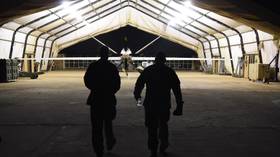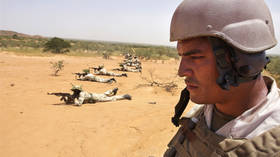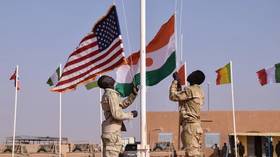Pentagon admits limits on drone flights in Niger

The US military has clarified that its drone flights in Niger will be limited to intelligence-gathering purposes, saying that armed “counterterrorism” missions largely remained on hold in the wake of a recent coup in the African state.
During a press briefing on Thursday, deputy Pentagon spokeswoman Sabrina Singh was asked whether Washington was still engaged in “kinetic operations” in Niger, a day after a senior US general suggested such missions had resumed.
“All I can say right now is that we have not restarted counter-terrorism operations. We are just flying ISR [intelligence, surveillance and reconnaissance] in order to monitor for any threats,” the press secretary said.
On Wednesday, Gen. James Hecker told a security conference in Maryland that US forces based in Niger were “doing a large amount of missions that [they were] doing before,” explaining that the military had resumed some manned aircraft and drone flights in the country after a brief pause due to a military coup there in July.
“For a while, we weren’t doing any missions on the bases, they pretty much closed down the airfields,” he said, as cited by the Associated Press.
Defense Department press secretary Patrick Ryder also reportedly confirmed that Washington was back flying missions in Niger, but only to “monitor for threats for the purposes of force protection.”
Last week, Niamey’s new military rulers announced that they had reopened Nigerien airspace to all commercial flights, which had been closed since early August, just days after they took control of the government. However, a US military official told the state-run Voice of America news outlet that commercial flight access had not “normalized” drone flight frequencies.
Asked how often US drones were operating in Niger, Singh declined to “get into timelines and how frequently they're flying,” only saying they are meant to “monitor any threats to our troops and are just there for force protection.” She added that the Pentagon has “sought the appropriate authorities” from Niger’s military junta, but refused to elaborate on US coordination with the local authorities.














